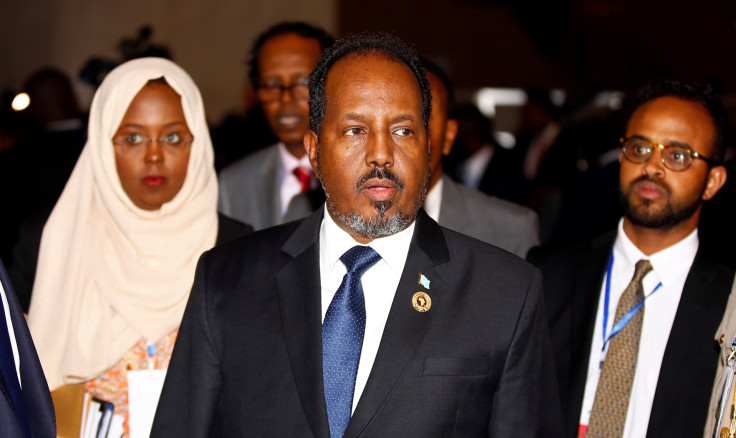Somalia Elections 2017: Date, Candidates, News, Election Process Explainer Ahead Of Unique Presidential Vote

After a series of delays, allegations of rampant corruption and the abandonment of a promise to return to true democratic elections, Somalia was expected to finally elect its president Wednesday. It will not be an election as the rest of the world knows it, however.
Having been elected to lead the country’s first federal government since the toppling of its military dictatorship and onset of civil war in 1991, Hassan Sheikh Mohamud promised one-person, one-vote elections by 2016. They would have been the first of their kind in the country for nearly 50 years. But he announced he was abandoning the proposal in 2015 due to ongoing security concerns. Instead, the next presidential vote would be conducted via a complicated system decided by clan elders, he said.
Last year, 135 clan elders began selecting the 14,025 delegates to comprise the 275 electoral colleges, each of whom began voting in October for an MP for the lower house of parliament. Together, with the 54 members of the newly created upper house chosen by Somalia’s new federal states, they will elect a speaker and a president.
"This election model, unique in the world, is a stepping stone, a political construct to help us get to the next stage," the United Nations special envoy to Somalia, Michael Keating, said last October. "It is the least objectionable compromise."
However, the process has not gone off without a hitch and the U.N, African Union and European Union have already called the credibility of the election into question. During the parliamentary vote, some candidates were offering bribes of up to $1.3 billion to secure votes. There were also reports of electoral fraud, violence and intimidation.
Despite those controversies, the National Leadership Forum (NLF), comprising Somali federal and state leaders, refused to allow fresh votes. The NLF also abruptly opted to up the number of members in the upper house to 75.
The vote for president has already been delayed on several occasions and the venue was switched from the police academy to the airport in the capital Mogadishu last week over corruption and security concerns.
Security remained a dominant issue going into the election, with the al-Shabab militant group, which has ties to al-Qaeda, continuing to control much of the country. Despite an attack from the group killing 29 people at Somalia’s main port in Mogadishu port just last week, incumbent president Mohamud has declared he wants to “complete the unfinished business.”
“Security was our first priority and it still remains our first priority,” he told Voice of America Somali Friday. “We will end the threat coming from anti-peace elements and we will lay foundations for reliable security agencies in the country.”
Still, Mohamud has been criticized over his failure to stop al-Shabab attacks by several of the 23 candidates with whom he will be vying for reelection. Among his opponents are his Prime Minister, Omar Abdirashid Sharmarke, former President Sharif Sheikh Ahmed and Ahmed’s former prime minister, Abdullahi Farmajo.
Despite a requirement that at least 16 members of each electoral college must be women, all the remaining presidential candidates are men after the only two women in the field withdrew.
© Copyright IBTimes 2024. All rights reserved.





















